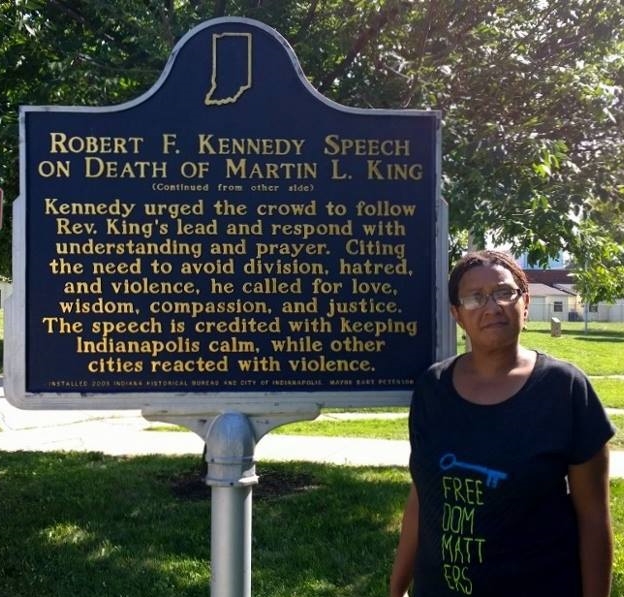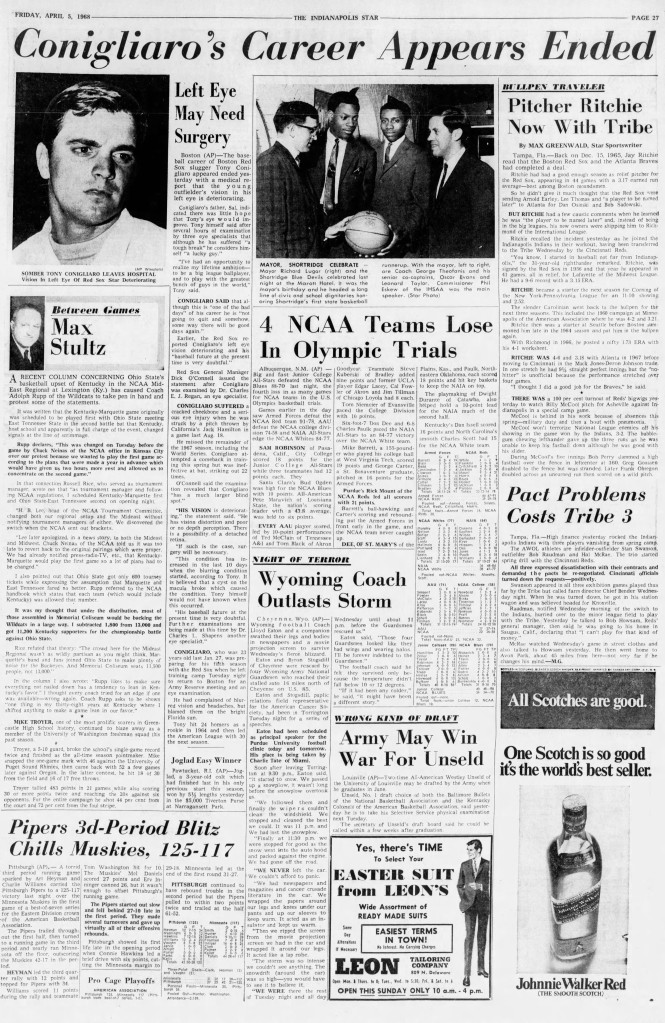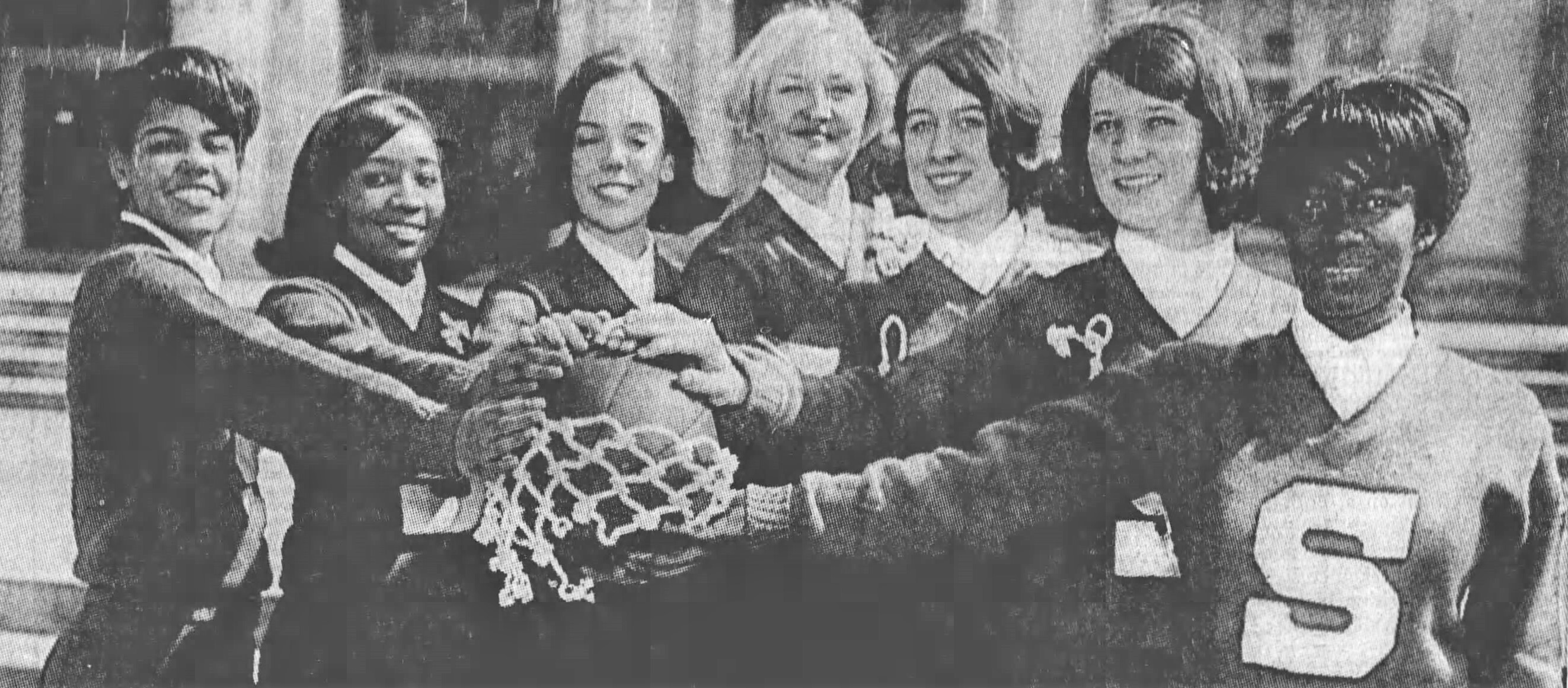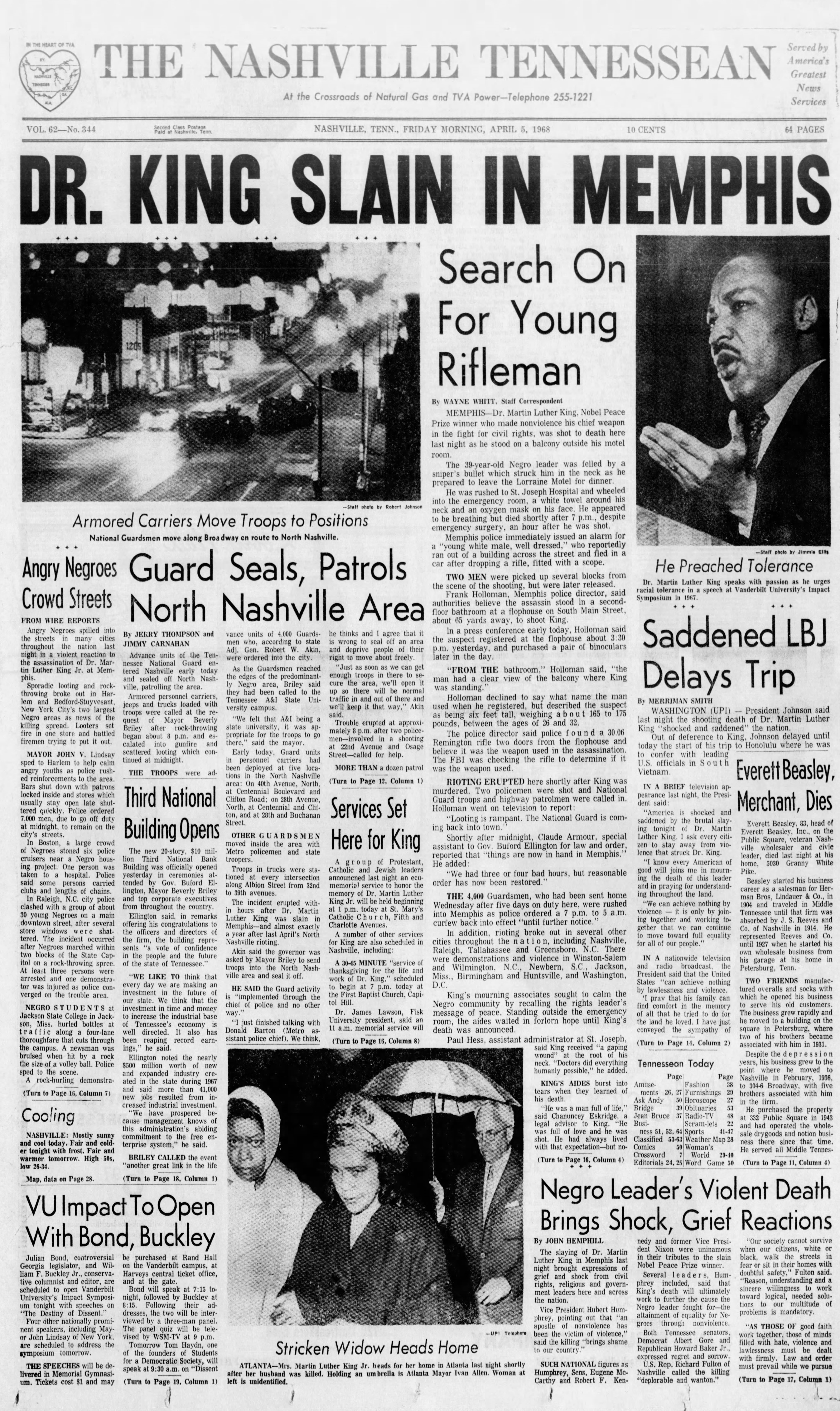We didn’t know what to expect as we exited the Marott Hotel banquet hall and entered the lobby as the Recognition Banquet for the Shortridge State Finalist basketball team concluded.
It was later, and there was confusion. In such emotional moments, it’s intriguing what details stick. How different people at the same event capture varied images.
“As I recall we had already been in the banquet room for a time and at some point we were sent out to the lobby,” wrote Dottie Gullion-Coombs, “I think the banquet room we were in was to the left of the front entrance of the Marott…”

Dottie was a Shortridge cheerleader. She’s one of several classmates and fellow Shortridge alumni have sent or posted thoughts on the season as this series has progressed. Some memories, particularly regarding the events of April 4-5, 1968, were requested. Other were unsolicited. Together, they all fill holes and help shape the story of one of the most transformative nights in American history.
Dottie’s image of the banquet and the lobby perfectly capture my vision of the structure, one of the few Indianapolis landmarks on the National Register of Historic Places.
Crowds coagulated in the middle of the room as the exiting banquet audience encountered the arriving entourage: Senator Robert Kennedy and his staff returning from 17th and Broadway where his expected presidential campaign speech instead became improvised announcement that Martin Luther King had been killed. He told them while we were celebrating the basketball season, and singing “Happy Birthday” to Richard Lugar, the mayor of Indianapolis, who had spent the afternoon trying to talk Kennedy’s staff into cancelling his scheduled campaign appearance. None of this we realized until getting home or seeing the next morning in The Indianapolis Star which made room for a photo of the banquet.


On the Campaign Trail
Kennedy’s speech is considered iconic, not only because of its eloquence and extemporaneous nature, but because it was a peacemaker. As cities throughout the U.S. were burned in violent outrage against the murder of Dr. King, Indianapolis did not burn. Lugar’s fears of reprisal as he received news of the shooting were assuaged by Kennedy’s words informing the crowd. Words that scarcely made the front page, as they were included as part of The Star’s overall story of Kennedy’s day of campaigning throughout Indiana, beneath a headline extolling primary support for Indiana governor Roger Branigan.
Kennedy was a half-hour late arriving in Indianapolis after speaking in South Bend and Muncie. Kennedy appeared shaken when he arrived at the Broadway Christian Center, 1654 Broadway, at about 9:30 p.m.
Many in the crowd of about 2,500 has not been informed of the shooting death of Dr. Martin Luther King. They had been waiting impatiently in a cold wind for Kennedy’s arrival.
“I have sad news for you and all of our citizens,” Kennedy began.
There was a shrill cry of “No! No!” in the crowd when he informed them: “Dr. Martin Luther King was shot and killed tonight.”
At the time of our exodus, however, much uncertainty abounded. Yes, Kennedy was back at the hotel, out of harm’s way from the outside crowd, but he still had to wind through the sea of people to get to the safety of his room. Yet, the sense of celebration and history were still important.
The Receiving Line
“I’m thinking one of the powers that be must have heard RFK was in the building and advocated for us to be in a handshake line,” Dottie continued.

“When we were sent out to the lobby I remember being in line with the team and other cheerleaders. It seems other individuals were present in the lobby as well and Bobby just went down the line shaking hands and offering salutations.
“I’m also sure I didn’t know about MLK’s assassination at the time this occurred because my emotional memories are of joy and excitement. It would have been different if I had known about the assassination.
“I’m fairly sure I found out the news about that when I got home that night since we didn’t have news at our fingertips back in the day.”



Super reporting, Mike why not 60minutes,,
LikeLike
Because 60 minutes is about how long It takes for me to write one paragraph! I’m the other hand, I am putting together a new clip file and dusting off the resume.
LikeLike
You missed your calling , Great professional writing
LikeLike
Thanks. We won’t say missed, yet, ’cause I’m still breathing, but definitely back-burnered. This series has, however, rekindled my fire. Thanks for the encouragement.
LikeLike